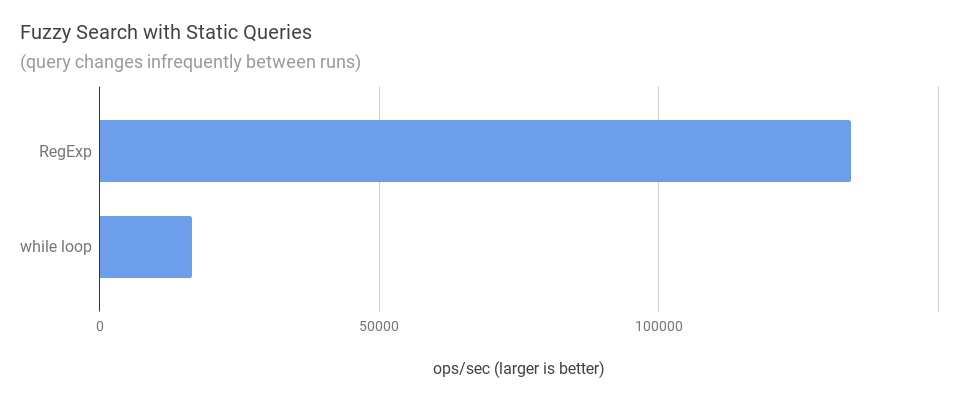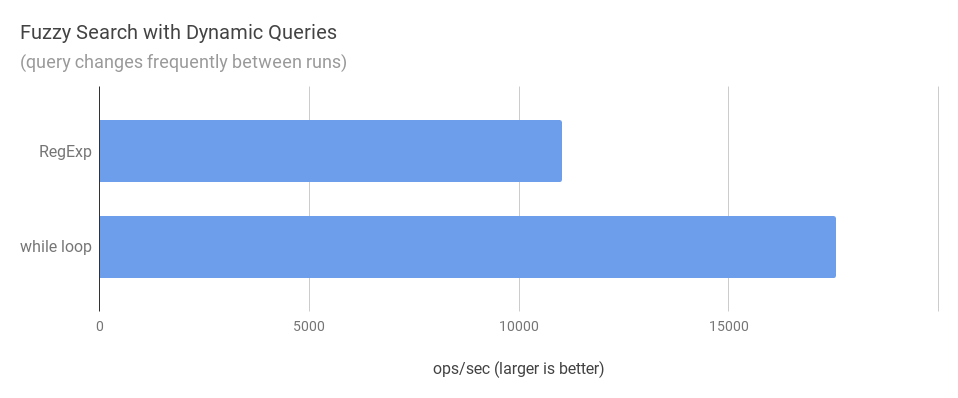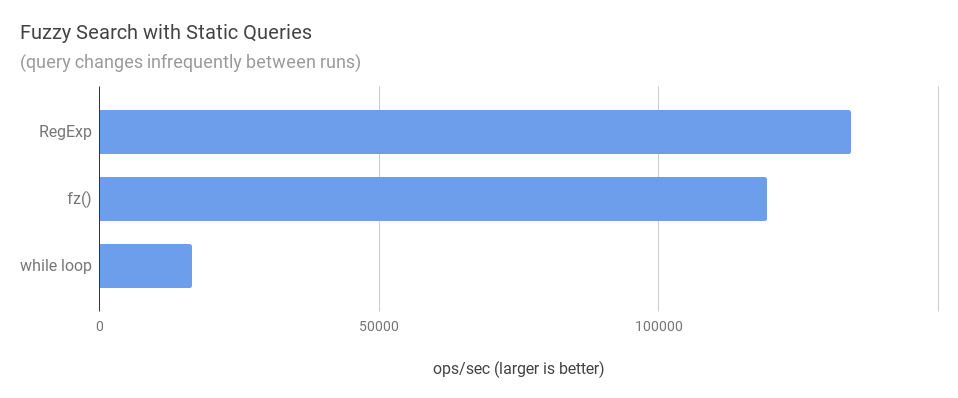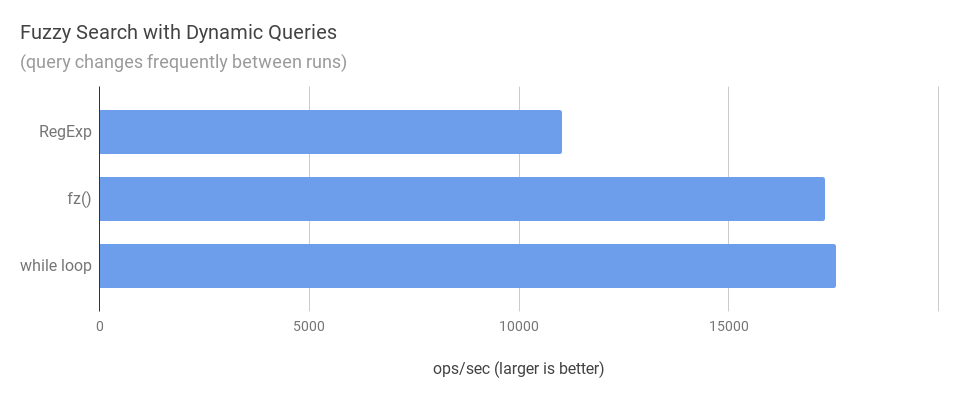
Product
Announcing Socket Fix 2.0
Socket Fix 2.0 brings targeted CVE remediation, smarter upgrade planning, and broader ecosystem support to help developers get to zero alerts.
🔍 Simple, fast, fuzzy string searching.
fz('fuzzy', 'fz'); // true
A recent project I worked on required building out a fuzzy search interaction. Surveying the already available options led me to discover that the majority of existing implementations go with one of two techniques:
for/while loops, checking character-by-character for matchesWhile benchmarking these approaches, it became clear that both of these techniques have merit, but under different circumstances. For example, given a use case where the query input remains relatively static between searches, the RegExp approach wins, hands down:

But when the conditions change such that the query input is highly dynamic and frequently changes between searches, the while loop actually fares better (primarily due to the underutilized cost of RegExp instantiation):

While not everyone requires a solution that tackles both dynamic and static search inputs, it seemed like a useful feature to bring to the table. Instead of choosing one of these techniques over the other, fz simply defaults to while loops, and if it detects that the same query is being used across successive calls, it internally optimizes to a RegExp approach.
While this internal optimization is a trivial one, the result is a solution that performs competitively (but not identically) with the more efficient solution for both of these use cases. For comparison, here is how fz stacks up for static query inputs:

And here it is for dynamic query inputs:

As can be seen above, fz does a decent job of keeping up for both static and dynamic input queries. If you're looking for a fuzzy search utility that removes some of the guesswork on which use case to optimize for, then fz might be a good option for you.
fz$ npm install fz --save
fz(candidate, query)Performs a fuzzy search against candidate, using query as the search criteria.
candidate will be considered a match for query using the following criteria:
query must have a match in candidate.candidate may contain any number of non-matching characters, including in-between the matching characters.Alternatively, if you think more in terms of regular expressions, then fz('foobar', 'fb') will behave similarly to /f.*b.*/i.test('foobar') (with special handling for escape sequences and other special characters).
Please see the examples below for more clarification.
Arguments:
candidate : String (Required)
The string value to search against.
query : String (Required)
The fuzzy search criteria to use when determining whether or not candidate is a match.
Returns: isMatch : Boolean
If candidate is a match for query, then true, otherwise false.
Examples:
const fz = require('fz');
fz('Wombat Developers Union', 'wdu') // true
fz('ninja pumpkin mutants', 'NPM') // true
fz('nebulus plasma muffin', 'mpn') // false
fz('foo', 'O') // true
fz('bar', 'bart') // false
fz('???', '') // true
fz('', '???') // false
fz('', '') // true
Pull requests are welcome, but I recommend filing an issue to discuss feature proposals first.
To get started:
$ npm install
$ npm test
$ npm run bench
A special shout-out and "thank you" goes to Diego Rodríguez Baquero for being awesome enough to hand over the fz package name on npm!
FAQs
Simple, fast, fuzzy string searching.
We found that fz demonstrated a not healthy version release cadence and project activity because the last version was released a year ago. It has 1 open source maintainer collaborating on the project.
Did you know?

Socket for GitHub automatically highlights issues in each pull request and monitors the health of all your open source dependencies. Discover the contents of your packages and block harmful activity before you install or update your dependencies.

Product
Socket Fix 2.0 brings targeted CVE remediation, smarter upgrade planning, and broader ecosystem support to help developers get to zero alerts.

Security News
Socket CEO Feross Aboukhadijeh joins Risky Business Weekly to unpack recent npm phishing attacks, their limited impact, and the risks if attackers get smarter.

Product
Socket’s new Tier 1 Reachability filters out up to 80% of irrelevant CVEs, so security teams can focus on the vulnerabilities that matter.